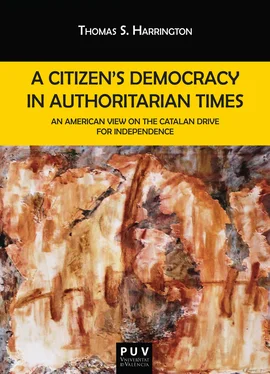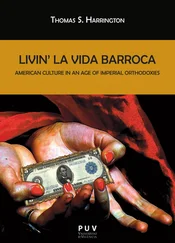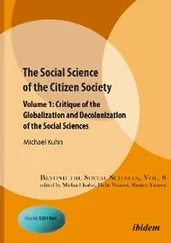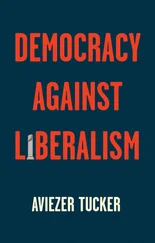He’s never lived permanently in Catalonia, but he speaks Catalan perfectly. It was a British teacher who opened his eyes to Spain’s national realities, and since that time he has not stopped studying those realities and communicating them to others from his position as Professor of Hispanic studies at Trinity College in Connecticut. Thomas Harrington, an American, mentions Catalonia a lot in his classes, speaking about the “miracle” that it, in many ways, represents. And he looks forward enthusiastically to the watershed events that will be taking place this Fall. However, (speaking in a telephone interview with ARA) he regrets that the government of his country, the United States, doesn’t see things in the same way. He thinks it’s very unlikely that Washington would recognize an independent Catalonia.
MF: How do the US media cover what is happening here?
TH: The English-speaking media tends to highlight the decisions made by political leaders as opposed the realities of citizen activism. Thus, the recent meeting between Rajoy and Mas received much greater coverage than the mass demonstration on September 11th. It’s rather frustrating. But the main problem is the mass media’s insistence on confusing the watershed moment that Catalonia is now experiencing with Spain’s fiscal crisis. We need to educate people a little here in the USA, so as to make a clear distinction between that contemporary situation and this historically-rooted matter.
MF: Is Catalonia at a watershed at the moment?
TH: I think it is, providing that it succeeds in dealing appropriately with the issue of self-persuasion among the Catalans. A little psychotherapy is in order before they can suddenly become a state after so many years of fighting just to be a nation. We’ll have to see what kind of leadership capacity Catalan civil society has to persuade the majority of the people to move forward in this way.
MF: Do you see it as all rather premature?
TH: I don’t know if you could call it premature. After 30 years of autonomy, Catalonia already possesses the foundations needed to become a state—much more so than it did during the Second Republic. With the institutions that Catalonia has now, it’s much more viable.
MF: And so you see an independent Catalonia as something viable.
TH: The question is, why not? Holland, Slovenia—these are countries with similar characteristics, and they’re perfectly viable. But those in favor of independence need to adopt a highly effective advocacy campaign to persuade the world at the same time as they work to persuade the Catalans themselves.
MF: How should we promote ourselves?
TH: I think Catalonia has some wonderful qualities: creativity, entrepreneurship and a culture of its own with a very balanced mixture of respect for tradition and modernity. You should promote yourselves as the Catalan miracle. When we look at the obstacles you have faced over the course of history, it’s really an epic achievement that we are speaking in Catalan today. That epic side of the story should be stressed more.
MF: Why do you think Spain refuses to even negotiate the fiscal agreement?
TH: Deep down, it’s a question of a mental block. Yesterday I was doing a class on the prologue from Antonio Nebrija’s Castilian Grammar from 1492. And in this prologue, we can already see the basic formula for Spain: Catholicism and the Castilian language bundled together. Everything else is secondary. I think this mental model of what a nation-state must be became very deeply rooted in Castile and, as we are seeing, any idea of a Spain in another form is, therefore considered impossible.
MF: Would the United States recognize a Catalan state?
TH: I think it’s very unlikely. Washington wants stability. It thus probably wouldn’t recognize a Catalan state. At this moment in history (and as we’ve seen from what Wikileaks has released), our foreign policy is extremely reactionary. We’re a nation that is incapable of recognizing the aspirations of most other people. US politicians and the Armed Forces are interested in stability, and stability means that nothing should change; they generally seek to maintain the status quo. The idea of a change that might also have fiscal or economic repercussions is viewed as a threat.
MF: Scotland also wants to decide on its future. Are they seen as similar cases in the United States?
TH: Scotland is part of Great Britain, and sad to say, Americans see Britain as being different from Spain. They’re our British friends, they’re a bit odd, but they’re “one of us.” The generally ignorant US perception of Iberians, in contrast, is that of people who aren’t so advanced or trustworthy. I think that for this reason the possibility of the US supporting a negotiated approach are, in the case of Britain, much be better than in the Iberian case.
[18]This is a translated version of Mariona Ferrer i Fornells, “Thomas Harrington: ‘Washington busca l’estabilitat, no reconeixeria un estat català.” Ara 8 October 2012.
The Essential Question of Our Time: “Will We Live as Citizens, or Go Back to Being Subjects?” [19]
AB: How come an American of Irish descent speaks Portuguese, Galician, Spanish and Catalan?
TH: It’s just one of those accidents. I studied Spanish in high school and was thrust into the role of teaching it in an emergency a few years later, though without knowing much about the subject. And by way of reward for my valor, the school where I was teaching sent me to the Iberian Peninsula to actually learn it. It was the beginning of an adventure that continues to this day.
AB: You didn’t know that people spoke Galician and Catalan here.
TH: For most Americans, the idea that there can be nations that aren’t also states is difficult to comprehend.
AB: Well, welcome to a historic moment. Portugal has been bailed out by the EU, on Thursday we’ll be changing from Juan Carlos I to Felipe VI, and Catalonia is engaged the process of planning a referendum on independence.
TH: Well, first of all, it’s been a privilege for me to be a Hispanist for the past 25 years. Yes, there are a number of problems here. In my opinion, it’s because many democratic processes have only gone half-way. The mythology of the Transition was very powerful. I myself, in my classes, always used to speak of Juan Carlos and Spain’s enviable transition to democracy. And now we understand much more clearly that it was an agreement that was forcibly imposed. This was something we kind of perceived but we really didn’t want to know.
AB: So that it wouldn’t turn out to have an unhappy ending.
TH: Right. And let’s not forget that at that time, Europe was going through a period of economic growth, and growth always conceals problems. But nations, just like people, discover who they are at their lowest points.
AB: What effect has Catalonia had on you?
TH: The depth and density of Catalan culture never fails to surprise me. When you think you know a lot about it, you find out that there’s always another group of people quietly doing amazing things, and in a very cosmopolitan fashion. Take for example Prat de la Riba, whose era of prominence is a part of your history that I truly love. Prat de la Riba and his followers created one of the most extraordinary records of civic accomplishment in contemporary history, one which has no comparison in the other parts of the Peninsula. Prat de la Riba and Cambó had a vision of how to create institutions. And I think this is very important for people today to recognize this. We’re in a time of institutional crises, and many people think “All right, we’ll make a new life without institutions, a new and improved post-institutional life.” But the example of the Catalan leaders from a hundred years ago has taught me a lot, and most importantly, that there’s no substitute for good institutions. Catalans have also taught me that there are many different forms of democracy: democracy in the street, and democracy at the table, etc.
Читать дальше












